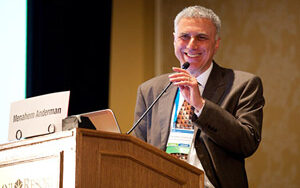A round up of news from the companies at the Advanced Automotive Battery Conference, AABC14, in Atlanta on 3 – 7 February.
· AABC: In an effort to “attract the right people”, said head honcho Dr Menahem Anderman, AABC Europe and AABC 2015 will include “two to three” sessions on stationary energy storage. AABC Europe will take place in Mainz, Germany on 26-29 January 2015 and AABC 2015 will be located in Grand Rapids, Michigan on 8-12 June.
· Alcoa: The metals engineering firm and Phinergy have entered into a joint development agreement to develop the latter’s aluminium-air batteries, which it claims could extend electric vehicle range by 1,000 miles. The companies will collaborate on new materials, processes and components. The joint venture is testing a 50 x 1.2V pack in a Citroen C1.
· BMW: The German carmaker has notched 10,000 sales for its i3 electric vehicle launched in November 2013. Florian Schoewel, project manager for the BMW i3 battery, said sales of the range extender version of the i3 – which utilises a 650cc internal combustion engine – were significantly below the expectation of 50% of total sales.
· Chrysler: The carmaker, wholly-owned by Italy’s Fiat Group since January 2014, is targeting a 20% cost reduction for lithium-ion battery packs by the end of 2015.
· Digatron Firing Circuits: The German battery test equipment maker has taken on a team of former Bitrode service employees. Based out of St Louis, Missouri, the team, nicknamed ‘Digatron East’, is available to service Bitrode equipment.
· Ford: Advanced Electrified Powertrain Systems engineering manager Daniel Kok, said Ford believes 12V lithium-ion systems for “next-generation” stop-start are a “very feasible” option.
· Magna Steyr: The German firm, which makes third-party battery packs, is to open its third lithium-ion battery pack manufacturing line for plug-in hybrids this summer. The new line will have a capacity of 30,000 units a year.
· Sabic: The Saudi Arabian chemicals concern is exploring entering the carbon additives market for lead-acid batteries and is in discussions to join the ALABC.
· Thermal Hazard Technology: The UK battery calorimetry experts are testing for overheating of lithium-ion batteries for the new season’s Formula 1 cars, which feature a downsized 1.6 litre, V6 engine with an enhanced energy recovery system. The 2013 season’s cars featured a 2.4 litre, V8 engine.












